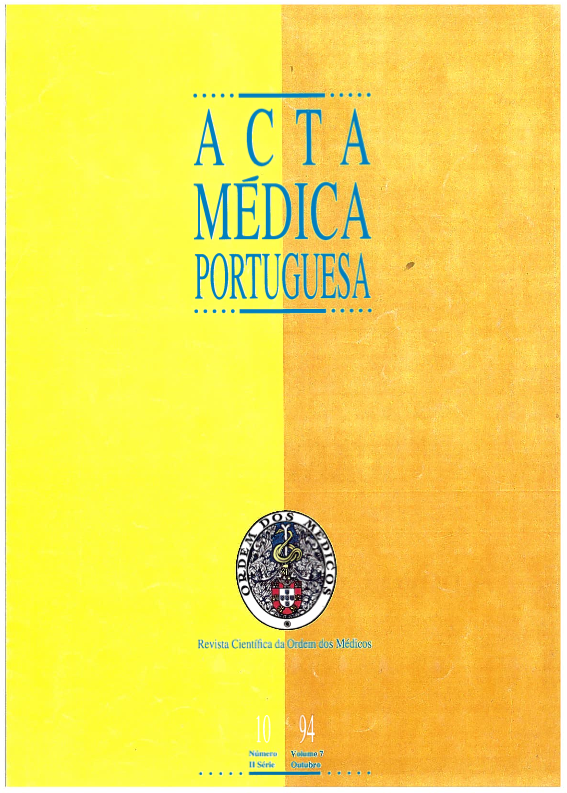Macrocheilitis and Melkersson-Rosenthal syndrome. Review of 19 cases.
DOI:
https://doi.org/10.20344/amp.2974Abstract
Melkersson-Rosenthal syndrome is an uncommon condition of unknown cause. The classical triad includes recurrent orofacial oedema involving predominantly the lips (macrocheilitis), intermittent peripheral facial palsy and scrotal tongue. Some authors consider Miescher's cheilitis as a monosymptomatic form of the syndrome. Nineteen cases (11 females and 8 males) of macrocheilitis seen at the Dermatologic Clinic, University of Coimbra, between 1966 and 1992, are reviewed. The complete triad of signs was present only in 4 patients (21%) and two features of the classic triad in 3 (16%) (macrocheilitis and lingua plicata in two; macrocheilitis and facial palsy in one). Twelve patients had only recorrent or persistent orofacial swelling. All 19 patients had macrocheilitis. Less commonly, the check, nose, forehead, eyelid, chin and buccal mucosa were also involved. Peripheral facial paralysis was present in 5 cases (26%), and scrotal tongue occurred in 6 (32%). Lip biopsies, performed in 17 patients, revealed the typical pathologic picture of granulomatous cheilitis only in 8 cases. Systemic corticosteroids and clofazimine were the most efficacious treatment.Downloads
Downloads
How to Cite
Issue
Section
License
All the articles published in the AMP are open access and comply with the requirements of funding agencies or academic institutions. The AMP is governed by the terms of the Creative Commons ‘Attribution – Non-Commercial Use - (CC-BY-NC)’ license, regarding the use by third parties.
It is the author’s responsibility to obtain approval for the reproduction of figures, tables, etc. from other publications.
Upon acceptance of an article for publication, the authors will be asked to complete the ICMJE “Copyright Liability and Copyright Sharing Statement “(http://www.actamedicaportuguesa.com/info/AMP-NormasPublicacao.pdf) and the “Declaration of Potential Conflicts of Interest” (http:// www.icmje.org/conflicts-of-interest). An e-mail will be sent to the corresponding author to acknowledge receipt of the manuscript.
After publication, the authors are authorised to make their articles available in repositories of their institutions of origin, as long as they always mention where they were published and according to the Creative Commons license.









